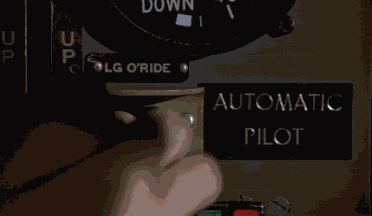Commercial airline pilots have become so dependent on automation that poor manual flying skills and failure to master the latest changes in cockpit technology pose the greatest hazards to passengers, an international panel of air-safety experts warns.
A soon-to-be-released study commissioned by the Federal Aviation Administration determined, among other things, that "pilots sometimes rely too much on automated systems and may be reluctant to intervene" or switch them off in unusual or risky circumstances, according to a draft reviewed by The Wall Street Journal.
While over the decades automation played a big part in making flying today safer than ever in the U.S. and globally, the draft highlights some downsides. The study found that some pilots "lack sufficient or in-depth knowledge and skills" to properly control their plane's trajectory, partly because "current training methods, training devices and the time allotted for training" may be inadequate to fully master advanced automated systems.
Among the accidents and certain categories of incidents that were examined, roughly two-thirds of the pilots either had difficulty manually flying planes or made mistakes using flight computers.
Relying too heavily on computer-driven flight decks—and problems that result when crews fail to properly keep up with changes in levels of automation—now pose the biggest threats to airliner safety world-wide, the study concluded. The results can range from degraded manual-flying skills to poor decision-making to possible erosion of confidence among some aviators when automation abruptly malfunctions or disconnects during an emergency.Read the rest of the story HERE and view a related video below:
If you like what you see, please "Like" us on Facebook either here or here.
Please follow us on Twitter here.
Please follow us on Twitter here.




No comments:
Post a Comment